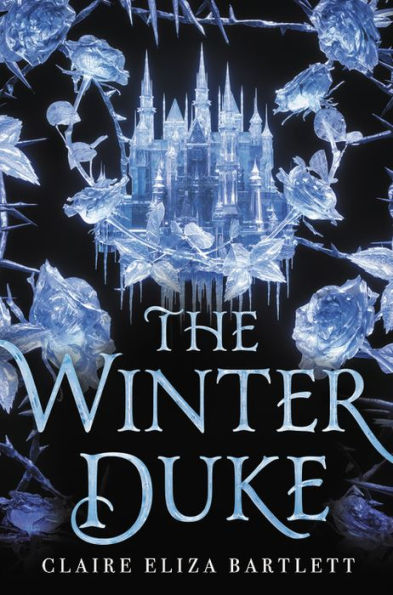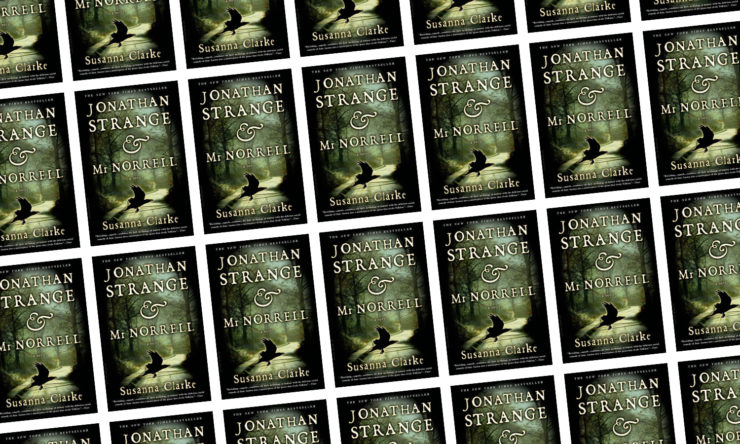Once, when I was still pursuing an academic career as an Egyptologist, I was visiting some old friends who made the mistake of asking me about my studies and what I was working on. I launched into a long diatribe about the metaphorical significance of the shape of ancient Egyptian headrests and it was some minutes before I realized that everyone’s eyes had glazed over—and longer still before I found a way to wrap up my little TED talk and gracelessly shut my mouth. Today, it reminds me of a wonderful part of Susanna Clarke’s Jonathan Strange & Mr Norrell, most specifically Strange’s misadventures in the Napoleonic Wars.
When Strange first arrives in Portugal, he is challenged by Lord Wellington, who doubts his usefulness:
‘Lord Wellington gave Strange a sharp look. “What I chiefly need is men. Can you make more?”
“Men? Well, that depends on what your lordship means. It is an interesting question…” To Strange’s great discomfort, he found he sounded exactly like Mr Norrell.’
[that is, dry and dusty and in Clarke’s words, ‘he hardly ever spoke of magic, and when he did it was like a history lesson and no one could bear to listen to him.’]
Wellington goes on to interrupt him and disregard him. Oh, how well I understand the dichotomy of a discipline regarded romantically by the public, when in-depth studies usually involve tedious argument, disdain for other experts in the field, and half-baked theories based on the barest fragments of text. And how well I love Jonathan Strange & Mr Norrell for treating historical fantasy through this lens.
I came to Jonathan Strange & Mr Norrell high on a renewed love of fantasy. Fantasy has always been my go-to genre, but the small selections of my local library and bookstore provided me with a lot of Farmboy narratives and not much else. JS&MN isn’t the first novel I read that broke the mold, but it was the first novel I read that put fantasy into historical fiction. As I devoured page after page, I kept thinking: can you do that? The answer is, if you’re Susanna Clarke you can. To seventeen year-old me, Susanna Clark was the epitome of the two best things ever: a historian and a fantasy author. She has, perhaps, influenced me more than any other professional.
Clarke’s footnote-laden style lends legitimacy to JS&MN as an academic historical work, both by referencing nonexistent novels or events and by recounting stories (primarily folklore) in a pseudo-academic tone. This contrasts with the tone of the main text: wry, sarcastic, and ominous in turn, but never attempting to be impartial. I found the most interesting dichotomy to refer to magic and fairies. For example, when my favorite character, Stephen Black, is being plagued by a fairy known as the gentleman with the thistle-down hair (who believes that Stephen must be made king), the gentleman contrives to give him all sorts of presents in strange ways. He causes twenty-five guineas to appear in the till of Mrs. Brandy’s grocery—money that, he says, will become Stephen’s when the two of them wed. The sudden appearance of the guineas is presented in ominous terms:
A heap of shining guineas was lying there. Mrs Brandy picked up one of the coins and examined it. It was as though she held a ball of soft yellow light with a coin at the bottom of it. The light was odd. It made Mrs Brandy, John and Toby look quite unlike themselves: Mrs Brandy appeared proud and haughty, John looked sly and deceitful and Toby wore an expression of great ferocity. Needless to say, all of these were qualities quite foreign to their characters. But stranger still was the transformation that the light worked upon the dozens of small mahogany drawers that formed one wall of the shop. Upon other evenings the gilt lettering upon the drawers proclaimed the contents to be such things as: Mace (Blades), Mustard (Unhusked), Nutmegs, Ground Fennel, Bay Leaves, Pepper of Jamaica, Essence of Ginger, Caraway, Peppercorns and Vinegar and all the other stock of a fashionable and prosperous grocery business. But now the words appeared to read: Mercy (Deserved), Mercy (Undeserved), Nightmares, Good Fortune, Bad Fortune, Persecution by Families, Ingratitude of Children, Confusion, Perspicacity and Veracity. It was as well that none of them noticed this odd change. Mrs Brandy would have been most distressed by it had she known. She would not have had the least notion what to charge for these new commodities.
Unnerving. Conversely, much of fairy meddling presented in footnotes is fairly dry and straightforward, even when focusing on the malice of fairies. For example, the third footnote of Chapter Five, ‘Drawlight,’ is a lengthy tale of a fairy who convinced seventeen people to enter a cupboard, none of whom ever came out again.
Human magicians also get an interesting treatment. Footnotes often go into lengthy (or not so lengthy) discussions on their lives and capabilities—consider footnotes three and four from Chapter twenty-three, ‘The Shadow House,’ which are happy to opine on the merits of numerous people: Ormskirk, who was ‘no very original thinker’ with a wife who ‘became the original of the magicians wife in stock comedies and second-rate novels’; and Charles Hether-Gray, whose spell of summoning is as useless as Ormskirk’s: ‘there is not a pin to chuse between them.’ These details are wonderful especially when compared to the in-text follies of Strange and Norrell, the greatest magicians of the age, who often do magic that is too imprecise to work, or too imprecise to stop working when and where it’s supposed to. Mr. Norrell’s vanity and pride causes him to perform imprecise magic when he raises a young woman from the dead and kicks off the plot of the novel. Strange, by contrast, often makes mistakes through rushed magic that he doesn’t quite understand and can’t quite define. A favorite example is another war story, when Strange uses birds to summon the various parts of Lord Wellington’s army to Quatre Bras to head off a French attack:
‘Strange was looking about him when a songthrush alighted upon his shoulder and began to chirrup:
The Duke’s ideas let us expound
At Quatre Bras the French are found…“What?” muttered Strange. “What are you doing here? You were supposed to have disappeared hours ago!”
He made Ormskirk’s sign to disperse a magic spell and the bird flew off. In fact, rather to his consternation, a whole flock of birds took flight at the same moment. He glanced round nervously to see if any one had noticed that he had bungled the magic; but everyone seemed busy with military concerns and he concluded that they had not.’
Buy the Book


The Winter Duke
Thus does Susanna Clarke highlight her two treatments of magic: the academic study of it, and its reality. Magic as defined by theoretical magicians, and the act of magic itself, which cannot be fully controlled no matter how fervently a magician has studied (Norrell), nor how naturally talented he may be (Strange). Magic as a comfortable, far-off theory and magic as a wild and dangerous and untamable thing (and, in a meta sense, the very act of writing: sometimes a rules-ridden academic game, sometimes a wild and dangerous and untamable thing).
Jonathan Strange & Mr Norrell is the sort of novel that I’ll spend my life wishing I could write, and knowing I never could. All the same, it taught me many things: that I can use my love of academic learning to write fantasy, and that the deeper I go, the more fun it is. That the sinister line between truth and fairy tale can be smudged, and Bad Things happen when it is.
Ten years after I read Jonathan Strange & Mr Norrell for the first time, I started working on my debut novel. It was heavily based in history, and historical fiction is a genre I’m entirely too terrified to write. But I thought of Susanna Clarke, and I rolled up my sleeves, and I told myself, Okay, but make it fantasy. So I did. Then it came time to write a second novel, and I had more historical inspiration! So I thought, Okay, but make it fairy tale. And I did. So perhaps I will never write like Susanna Clarke, but that’s okay, because she taught me another way to write like myself, and that has literally changed my life.
Claire Eliza Bartlett grew up in Colorado. She studied history and archaeology and spent time in Switzerland and Wales before settling in Denmark for good. She is the author of We Rule the Night and The Winter Duke. When not at her computer telling mostly fictional stories, she works as a tour guide in Copenhagen, telling stories that are (mostly) true. The Winter Duke is available now.










